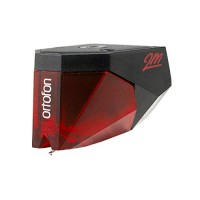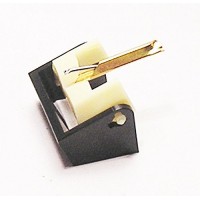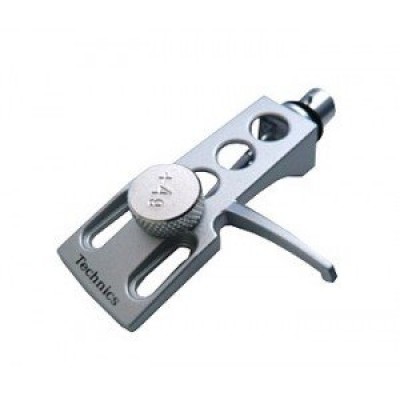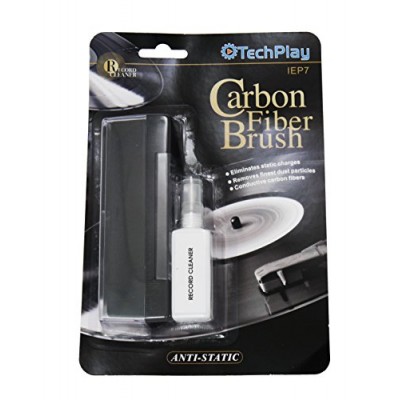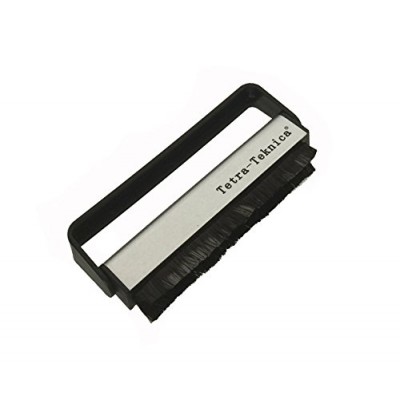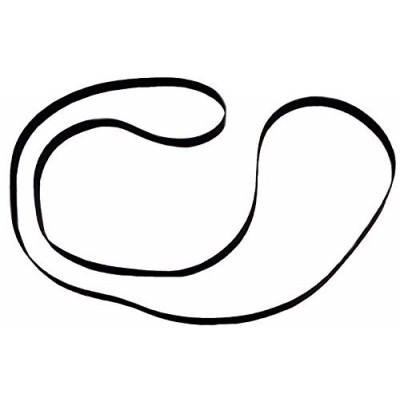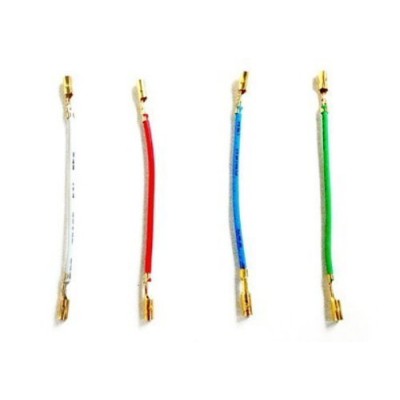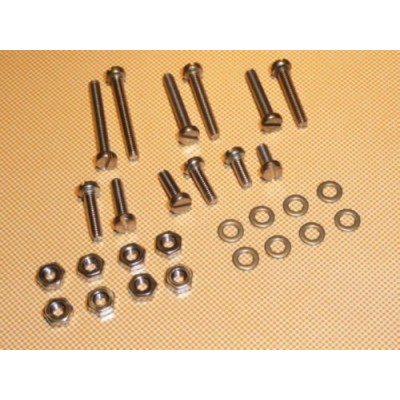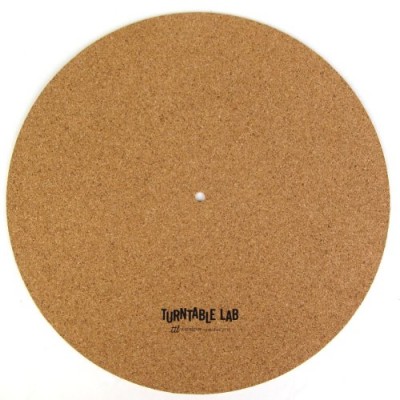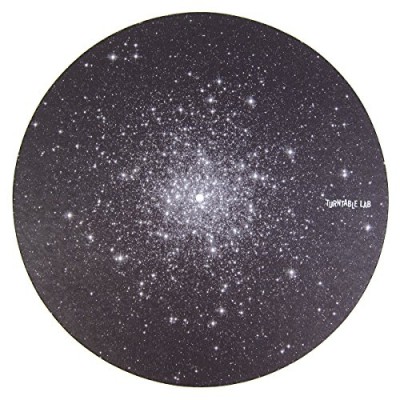Take a look inside BaseVinyl.com
Live at Jittery Joe's
Jeff Mangum 'Live at Jittery Joe's' is the first live recording of Jeff to be released to the public. The solo acoustic show took place at a local coffee house in Athens, GA in 1997 and was recorded onto high 8 video by ..
[Apple Airplay Certified]GGMM M4 Wireless Speaker for Music Streaming,Wi-Fi Bluetooth Indoor Outdoor Speaker, Built-in Battery,10-Hour Playtime,Pow...
GGMM M4 – Portable Hi-Fi Wireless Bluetooth / Wi-Fi Speaker FEATURES: 3 Connection Modes -- Wi-Fi Mode, Bluetooth Mode, Auxiliary Mode. Ability to connect up to 16 devices Multi Functions -- Support for Wireless Music S..
Ortofon 2M Red MM Phono Cartridge
The Absolute Sound Product of the Year Award Winner The Ortofon 2M Red is an evolution and an update of Ortofon' s best-selling OM Series of Moving Magnet cartridges. The 2M body, generator and stylus profile have all be..
Greatest Hits (2LP)(Explicit)
2LP set. Unbeatable 16-track collection spanning 1989 to 2003, including the exclusive cuts "Fortune Faded" and "Save The Population".Shrink-wrapped..
Skin Companion EP I
Shrink-wrapped..
Free Hand
Many a fan's and a critic's favorite (not only of Gentle Giant's albums but also of prog-rock's as a whole), this 1975 LP was the band's shining moment. Rising to #48 in the States, it is Gentle Giant's most felicitous m..
Felona E/And Sorona 2016 Limited Numbered Edition
Shrink-wrapped..
Parts, Cleaning & Accessories
Technics: Headshell for Technics 1200 - SILVER
Add shine to your deck with the silver Technics headshell. Fits most turntables with tonearms that accept screw-in headshells including all SL-1200 models, plus turntables by Stanton, Numark, Vestax, etc. and includes +4..
TechPlay Anti Static Carbon Fiber record and LP cleaner and washer with Stylus brush and record cleaning liquid set.
Step up to a better cleaner set for your vinyl. This high tech Carbon Fiber brush, not only cleans, also eliminates static charges on your valuable LPs. The carbon Fiber particles, much smaller than human hair, can get d..
TechPlay Anti Static Carbon Fiber record and LP cleaner and washer with Stylus brush and record cleaning liquid set.
Step up to a better cleaner set for your vinyl. This high tech Carbon Fiber brush, not only cleans, also eliminates static charges on your valuable LPs. The carbon Fiber particles, much smaller than human hair, can get d..
Tetra-Teknica RB-01 Anti-Static Carbon Fiber LP Vinyl Record Brush
Made of high quality anti-static carbon fiber, the RB-01 is ideal for vinyl LP care and maintenance. It removes finest dust particles while eliminates the static at the same time. It's very easy and convenient to use. Ju..
TURNTABLE BELT FOR CROSLEY CR6004A CR6017A CR6019A CR66 CR67 CR69 CR70
Panic! At The Disco - Too Weird To Live, Too Rare To Die! (Vinyl) 1"This Is Gospel" 3:072"Miss Jackson" 3:12 3"Vegas Lights" 3:10 4"Girl That You Love" 3:09 5..
TURNTABLE BELT FOR JCPENNEY 6205 6230 6400 6401 6500 6502 6710 MCS-6500 MCS-6502
Panic! At The Disco - Too Weird To Live, Too Rare To Die! (Vinyl) 1"This Is Gospel" 3:072"Miss Jackson" 3:12 3"Vegas Lights" 3:10 4"Girl That You Love" 3:09 5..
TURNTABLE BELT FOR SANYO TP-728 TP-747 TP-808 TP-868 TP-1005 TP-1005A TP-1010
Belts are brand new stockBelts are manufactured to match the OEM specsOutstanding Tech Support / 45 years experienceLifetime Warranty on all belts..
TURNTABLE BELT FOR SONY TP-6850 PS-LX200H PS-LX250H PS-LX295 WARRANTY NEW
Belts are brand new stockBelts are manufactured to match the OEM specsOutstanding Tech Support / 45 years experienceLifetime Warranty on all belts..
TURNTABLE BELT FOR TECHNICS SL-BD22 SL-BD1 SL-BD2 SL-BD21 SL-BD35 SL-HM42 SG-D10
Belts are brand new stockBelts are manufactured to match the OEM specsOutstanding Tech Support / 45 years experienceLifetime Warranty on all belts..
TURNTABLE BELT FOR TECHNICS SL-L20 SL-B205 SL-B210 SL-B210-1 SL-301M SL-301MC
Belts are brand new stockBelts are manufactured to match the OEM specsOutstanding Tech Support / 45 years experienceLifetime Warranty on all belts..
TURNTABLE BELT FOR THORENS TD-125 TD-145 TD-160 TD-165 TD-165C TD-574
Belts are brand new stockBelts are manufactured to match the OEM specsOutstanding Tech Support / 45 years experienceLifetime Warranty on all belts..
Turntable Cartridge Headshell Wires
For the best connection between your cartridge and existing tonearm, use these 45mm Length OFC (oxygen free copper) leads with non magnetic, varying-gauge gold plated cartridge pins. These leads are compatible with most ..
TURNTABLE HEADSHELL CARTRIDGE FASTENER SCREWS 28 Piece Set
45mm Length OFC (oxygen free copper) leads.Non magnetic, varying-gauge gold plated cartridge pins.Compatible with most tonearms and cartridges...
Turntable Lab: Cork Record Mat
Custom cork slipmat from Turntable Lab. Improves sound and performance of listening turntable setups.custom Turntable Lab cork record matimproves sound quality playback with cork's dampening qualities (lessens vibrations..
Turntable Lab: Spacemat Record Slipmat - Single
Custom Lab slipmats featuring an awesome star field print designed by PH. Super soft style, medium weight mats with smooth sublimated print for a smooth surface that won't scratch your records. Suitable for DJing or ever..


![[Apple Airplay Certified]GGMM M4 Wireless Speaker for Music Streaming,Wi-Fi Bluetooth Indoor Outdoor Speaker, Built-in Battery,10-Hour Playtime,Pow... [Apple Airplay Certified]GGMM M4 Wireless Speaker for Music Streaming,Wi-Fi Bluetooth Indoor Outdoor Speaker, Built-in Battery,10-Hour Playtime,Pow...](https://www.basevinyl.com/image/cache/catalog/ggmm/apple-airplay-certified-ggmm-m4-wireless-speaker-for-music-streaming-wi-fi-bluetooth-indoor-outdoor-speaker-built-in-battery-10-hour-playtime-pow-B00RWH769M-200x200.jpg)
